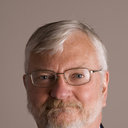Nighttime eating: a descriptive study.
Fjalë kyçe
Abstrakt
OBJECTIVE
The definition of night eating syndrome (NES) is inconsistent across various studies and literatures. The goal of the current descriptive study was to collect data on participants who were selected using broad criteria for nighttime eating. Researchers have cogently argued for consideration of wide ranges including "subsyndromal" cases before reifying diagnostic constructs prematurely.
METHODS
One-hundred six participants with broadly defined nighttime eating problems were recruited through newspaper advertisements and were interviewed over the phone. The following instruments were administered: the Night Eating Questionnaire, the Night Eating Syndrome History and Inventory, the Eating Disorder Questionnaire, the Structured Clinical Interview for DSM-IV diagnoses and a Sleep Disorder Questionnaire.
RESULTS
Thirty-one (29.2%) participants met the original criteria described by Stunkard et al. (Am J Med 1955;19:78) and only 14 (13.2%) participants met all of the most recent proposed criteria for NES (Birketvedt et al., JAMA 1999;282:657). The overlap between binge eating disorder (BED) and nighttime eating problems was modest in our sample with only 9 participants meeting current BED criteria. One half of our sample was obese. Regular nocturnal eating was reported by 57.5% of the participants. Dieting was not a frequent precursor or antecedent of nocturnal eating. However, self-reported current parasomnias were quite frequent in our sample.
CONCLUSIONS
Our descriptive study confirms some of the observations made by other researchers. Nevertheless, nighttime eating is still an evolving concept that requires close collaboration between eating and sleep researchers.


